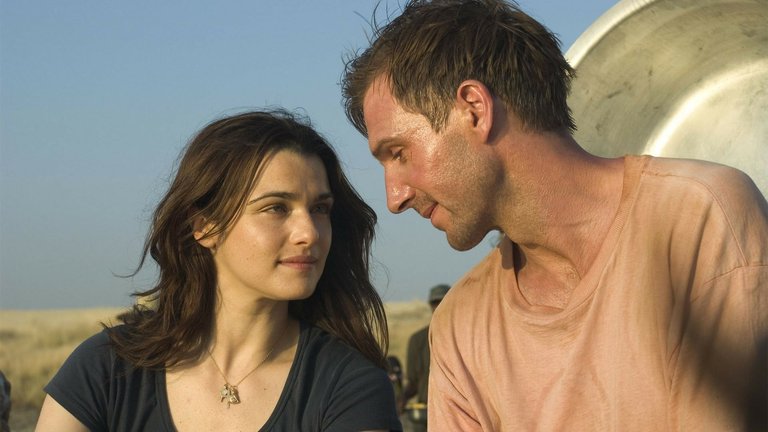Film Review: The Constant Gardener (2005)

While it is commendable when filmmakers have their hearts in the right place, their efforts can fall short when they try too hard to convince the audience and themselves. Such is the case with the 2005 thriller The Constant Gardener, directed by Fernando Meirelles.
The film is based on the 2001 novel of the same name by renowned British author John le Carré, known for his spy fiction. The protagonist, Justin Quayle (played by Ralph Fiennes), is a quiet and unassuming mid-level British diplomat whose greatest passion appears to be gardening. Despite their differences in character and lifestyle, Quayle is drawn to and marries the fiery humanitarian activist Tessa (played by Rachel Weisz). However, Quayle's marital bliss is shattered when Tessa is killed during one of her field missions in Kenya, where Quayle is stationed. Heartbroken, Quayle soon realizes that the details surrounding his wife's death are suspicious, and when his superiors try to discourage him from further inquiry, he becomes even more determined to uncover the truth. It turns out that Tessa was investigating a large multinational pharmaceutical corporation and its apparently fatal tests of a faulty anti-tuberculosis drug on unsuspecting Kenyans.
The Constant Gardener was an ambitious project, made at a time when many intellectuals, artists, and filmmakers were becoming visibly critical of Western governments and corporations and their responsibility for the dire state of the world, as evidenced by the true nature of the carnage in Iraq. This anger was reflected in the film, which boasted a respectable cast, including Ralph Fiennes and Rachel Weisz, who delivered some of the best performances of their careers, with Weisz winning the Oscar for Best Supporting Actress. The supporting cast was also strong, with the possible exception of Danny Huston, who was not entirely convincing as Justin's opportunistic superior.
However, the film's choice of director was unfortunate. A few years earlier, Brazilian director Fernando Meirelles had impressed cinephiles with his epic gangster saga City of God, set in the favelas of Rio de Janeiro. The idea was that Meirelles would capture the spirit of the another exotic Third World setting, including Nairobi's sprawling Kibera slum, in a similar manner. Meirelles did indeed shoot some fascinating scenes in these locations, using a semi-documentary style. But when the camera moved to the office scenes, it became apparent that Meirelles' style, based on handheld camerawork and jump cuts, was not adequate for the rather cerebral thriller with a complicated plot. The use of flashbacks further confused the audience, and the film lost much of its emotional impact.
The Constant Gardener is a dark and depressive film, and its darkness has become even more apparent with the passage of time, especially after certain recent events that have made its subject matter more relevant. Le Carré's original novel was inspired by real-life events in 1996 Nigeria, where the pharmaceutical giant Pfizer was administering apparently faulty drug tests on children. That same corporation would later become even more powerful, and the controversies related to its handling and exploitation of real-life pandemics would dwarf its fictional counterparts in the film. Unlike the film, however, the real corporation did not need to resort to "wet work" to silence troublemaking activists, having the power to easily suppress the truth and maintain the official line through the use of internet giants, media, governments, and even actors and artists.
While the world has apparently not learned much from The Constant Gardener, the efforts of its filmmakers were not entirely in vain. After witnessing the appalling conditions in Kibera and other Kenyan locations during the production, the cast and crew established a charity trust dedicated to improving the lives of the locals. In this small measure, The Constant Gardener justified its existence by making the world a better place.
RATING: 4/10 (+)
Blog in Croatian https://draxblog.com
Blog in English https://draxreview.wordpress.com/
InLeo blog https://inleo.io/@drax.leo
Hiveonboard: https://hiveonboard.com?ref=drax
Rising Star game: https://www.risingstargame.com?referrer=drax
1Inch: https://1inch.exchange/#/r/0x83823d8CCB74F828148258BB4457642124b1328e
BTC donations: 1EWxiMiP6iiG9rger3NuUSd6HByaxQWafG
ETH donations: 0xB305F144323b99e6f8b1d66f5D7DE78B498C32A7
BCH donations: qpvxw0jax79lhmvlgcldkzpqanf03r9cjv8y6gtmk9
Posted Using InLeo Alpha